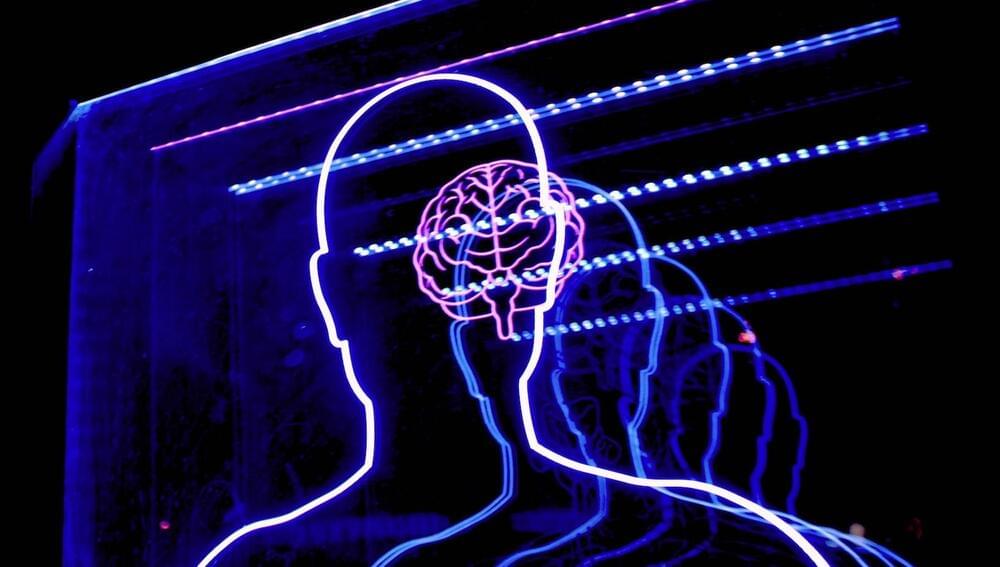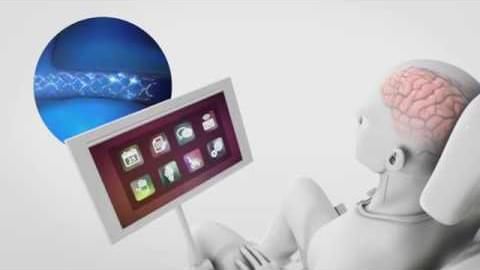Jul 10, 2023
How Similar Are Insect Brains to Human Brains?
Posted by Shubham Ghosh Roy in category: neuroscience
A fly’s brain can tell us a lot about insect intelligence and maybe a thing or two about our own.
A fly’s brain can tell us a lot about insect intelligence and maybe a thing or two about our own.
A team of scientists led by Nanyang Technological University, Singapore (NTU Singapore) has found that an existing cancer drug could be repurposed to target a subset of cancers that currently lack targeted treatment options and are often associated with poor outcomes.
This subset of cancers makes up 15% of all cancers and is especially prevalent in aggressive tumors such as osteosarcoma (bone tumor) and glioblastoma (brain tumor).
These cancerous cells stay “immortal” using a mechanism called the alternative lengthening of telomeres (ALT), but the team has demonstrated that ponatinib, a cancer drug approved by the US Food and Drug Administration, blocks key steps in the ALT mechanism that leads it to fail.

An Israeli startup has developed a wearable device that can predict the likelihood of an imminent stroke through changes in the carotid artery’s blood flow, potentially helping early intervention and preventing disablity.
Strokes are most commonly caused by a clot blocking the essential supply of blood to the brain, and according to the World Health Organization are the second leading cause of death and the leading cause of disability across the globe.
Continue reading “Wearable Device Predicts Stroke, Saving Crucial Treatment Time” »
Working on your muscles could help delay the onset of Alzheimer’s symptoms, researchers have revealed.
Researchers from the Federal University of São Paulo and the University of São Paulo in Brazil have uncovered strong evidence that resistance training – where muscles are worked against a weight or a force – could have significant consequences for the brains of dementia patients.
Before you hurriedly renew your gym membership or break out the home exercise equipment, it’s worth bearing in mind that this was a mouse model study. Nevertheless, the same principles are likely to apply to humans.
Summary: Our brains have been likened to an orchestra, with neurons as musicians creating a symphony of thought and memory.
A recent study reveals the conductor behind this symphony: electric fields. These fields are generated by the combined electrical activity of neurons, orchestrating them into functional networks.
This research shines a light on the brain’s complex inner workings and could impact the future of brain-computer interfaces.
A new study by researchers at the University of Cambridge reveals a surprising discovery that could transform the future of electrochemical devices. The findings offer new opportunities for the development of advanced materials and improved performance in fields such as energy storage, brain-like computing, and bioelectronics.
Electrochemical devices rely on the movement of charged particles, both ions and electrons, to function properly. However, understanding how these charged particles move together has presented a significant challenge, hindering progress in creating new materials for these devices.
In the rapidly evolving field of bioelectronics, soft conductive materials known as conjugated polymers are used for developing medical devices that can be used outside of traditional clinical settings. For example, this type of materials can be used to make wearable sensors that monitor patients’ health remotely or implantable devices that actively treat disease.

The first endovascular neural interface, the Stentrode™ is a minimally invasive implantable brain device that can interpret signals from the brain for patients with paralysis. Implanted via the jugular vein, the #Stentrode is placed inside the #brain in the command-control center, known as the motor cortex, but without the need for open brain surgery. The signals are captured and sent to a wireless unit implanted in the chest, which sends them to an external receiver. We are building a software suite that enables the patient to learn how to control a computer operating system and set of applications that interact with assistive technologies. This #technology has the potential to enable patients with paralysis to take back digital control of their world, without having to move a muscle.
Synchron is currently preparing for pilot clinical trials of the Stentrode™ to evaluate the safety and efficacy of this breakthrough technology.
Continue reading “Synchron Stentrode: Brain Computer Interface for Paralysis” »

Brain-based technologies of spiritual enhancement can induce mystical experiences in many people on demand. What does this mean for spirituality today?

Dog and cat linguists rejoice we can talk to them and understand them with lots of apps and other devices in this article 😀 😊 😄 😉.
All dog owners have wished there was such a thing as a translator for their dog. The movie Up brings this concept to life with a collar that translates everything the dog says. But does a dog translator exist in real life? We might not have flying cars yet in the 21st century, but dog translators do exist.
Continue reading “Are There Dog Translators? [Are They Good?]” »
The mesh has already proved successful on fruit fly larvae in Minnesota, and with two species of mushroom coral in Hawaii and Australia. In Florida, Hagedorn and colleagues were trying it on Diploria labyrinthiformis, a kind of brain coral whose larvae are more than 100 times bigger than those of mushroom coral. In the first few attempts, rewarmed larvae were falling apart. Each larval size, Hagedorn was learning, needs its own version of the treatment. “We’re struggling a little bit to get this to work,” she says.
WHILE SCIENTISTS such as Bischof and Hagedorn wrestle with vitrification, others are seeking an easier route by avoiding ultralow temperatures that require large infusions of cryoprotectant and make rewarming so challenging.
At Harvard University and MGH, scientists are taking cues from nature to push tissues below freezing while holding back the ice. The wood frog (Rana sylvatica) is a champion of this realm. Found in much of North America, including the frigid Canadian Arctic, it can spring to life after spending months with as much as two-thirds of its body frozen at temperatures as low as −16°C.